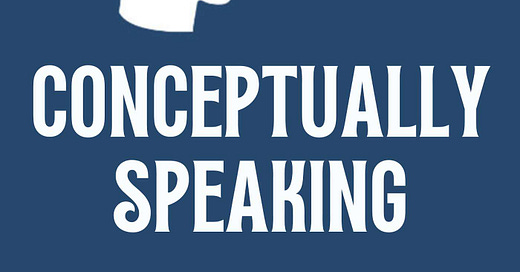In an effort to better align some of my ongoing projects, I plan on cross-posting episodes of my podcast, Conceptually Speaking, once a month. On weeks where I’m not posting new episodes, I’ll be digging back into my catalog and reposting older episodes you may not have heard if you’re new to my work. You can expect the content of these episodes to dovetail nicely with everything I’m sharing on Becoming Literary.
In this thought-provoking episode, I sit down with Dr. Remi Kalir, the Associate Director of Faculty Development and Applied Research with Learning Innovation and Lifetime Education at Duke University, where he also serves as Associate Director of the Center for Applied Research and Design in Transformative Education. He has also completely revolutionized my thinking about annotation. As someone who was relatively ambivalent about annotations, Remi's perspective transformed me into a fan, believer, and enthusiastic practitioner. Our conversation challenges conventional wisdom about annotation, as Remi argues that we're all annotators, from the grandmother scribbling recipe modifications to fans dissecting Kendrick Lamar's lyrics on Genius. He also shares fascinating examples from his upcoming book "Re/Marks on Power" (MIT Press, 2025), including Harriet Tubman's previously unexamined annotations in pension files, protest markings on Confederate monuments, and how the US-Mexico border itself represents a form of annotation—a line drawn imprecisely on a map as an exercise of power.
Key Concepts from the Episode:
Annotation as a Social Practice
Annotation is more than a reflection of individual comprehension
Annotations have a "social life" that extends beyond the text and time
Annotation is dialogic rather than an isolated literacy act
Annotation as a Tool for Critique
Annotation serves as a tool for critique and challenging authority
Annotation can circulate counter-narratives and resist dominant ideologies
E.g. Harriet Tubman's use of annotations on pension documents
Annotation as an Embodied Practice
Annotations can be embodied and geographic
Protests and interventions on monuments represent forms of annotation
Digital annotation practices are all over spaces like TikTok, Genius, etc.
Particularly compelling is our discussion of annotation's unique affordances: its proximity to the original text, its capacity for "rough draft thinking," and its ability to make our responses visible to others across time and space. Remi invites us to see annotation not as an isolated comprehension check but as a dialogic practice with profound implications for critical literacy, social justice, and civic engagement. For educators struggling to make annotation meaningful beyond compliance, this episode offers both theoretical insights and practical inspiration to transform this everyday practice into something that can, as Remi says, "live, speak, and inspire."
Re/Marks on Power (Newsletter)







Share this post